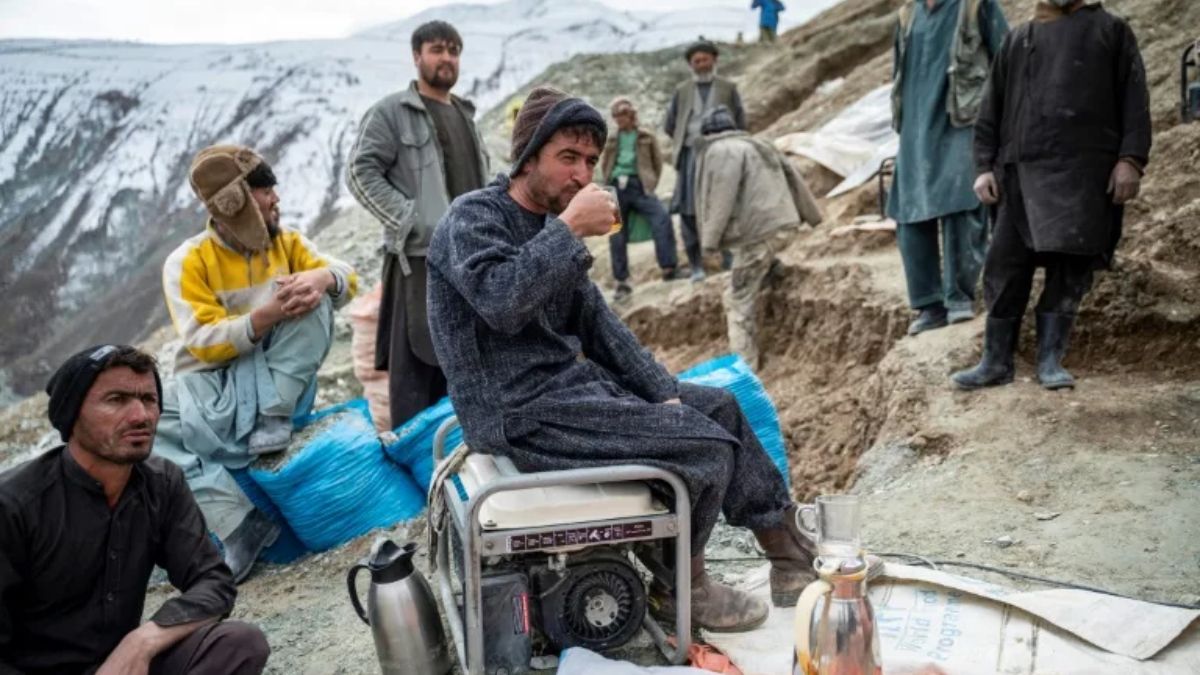Homayon, a 30-year-old mechanic from Afghanistan’s Faizabad city, takes a momentary break from the noisy machinery as he nibbles on a piece of stale flatbread and sips tea.
He, along with a group of unemployed men, has ventured into the mountains of northeastern region of the country in search of gold. Despite the lack of success in their mining endeavors, they persist in hopes of a prosperous outcome, despite the looming threat of debt.
According to Homayon, their small-scale mining operation has yielded minimal results despite significant investments in resources and labor. However, the hope of striking it rich keeps them digging, despite warnings from fellow miner Qadir Khan about the financial risks involved.
The dire economic situation in Afghanistan, exacerbated by the recent Taliban takeover and ongoing poverty affecting half the population, has driven many like Sharif, a former livestock keeper, to turn to mining for survival.
“We are still farming, but it is not the way it used to be,” he said, complaining of a lack of water – another shortage drought-hit Afghanistan has faced in recent years.
The rocks Sharif helps mine are broken up and hoisted down the steep mountainside, then pulverised into a flour-like substance.
On the banks of the Kokcha River, which snakes between snow-capped peaks, men use makeshift buckets to scoop water over piles of the powder. It is then sifted as it runs down a sluice covered by material pulled from car interiors.
Impact Shorts
More ShortsThe proceeds of the first wash are used to fund the equipment and labour and to keep the mine going. The gains from the second and third washes are shared between those bankrolling the operation.
- Dangerous work -
A young man stopped swirling water around a shallow dish to separate the powdery rock from gold, pulling from his pocket a bit of plastic wrapped around 4,000 Afghanis-worth of the precious metal.
As of late February, 4.5 grams (0.16 ounces) of the precious metal could be sold for 18,000 Afghanis (about $250), Homayon said.
Global gold prices hit an all-time high of $2,141.79 per ounce on March 5.
Even if the miners can collect significant amounts of gold, a fifth of proceeds will go to the Taliban authorities.
Delving deep into the Afghan mountains, the miners risk not just debt, but death as well.
Mine collapses are common in Afghanistan, which is rich with precious minerals like the lapis lazuli Badakhshan is famous for.
The miners on the Kokcha said they had lost friends recently, and local media reported earlier this month that a gold miner died when part of a mine collapsed in neighbouring Takhar province.
In 2019, at least 30 people were killed when a gold mine collapsed in Badakhshan.
Despite the risks, the men continue digging.
“So far we have not found much of anything,” said Homayon. “But we have hope, we trust in God.”
With inputs from AFP
)